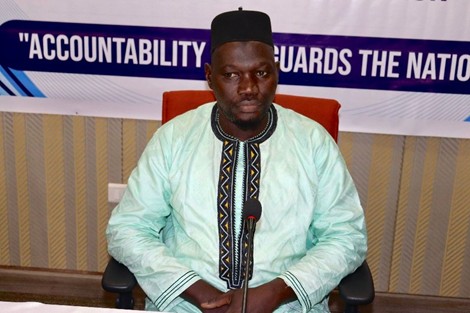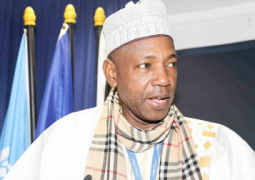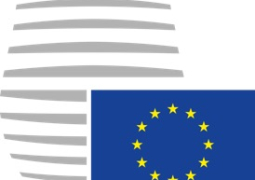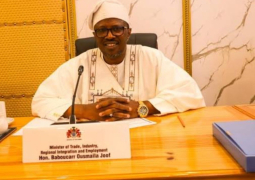
During yesterday’s hearing, Momodou Darboe, the head of Parks and Wildlife Management (GiLMA), faced tough questioning in parliament as he revealed serious problems with how cattle of former President Yahya Jammeh were valued and sold, costing loss of millions of dalasi to the government.
Darboe acknowledged that his team did not have the proper training and used unreliable methods to assess the cattle’s value in 2017. The scandal centres on the sale of hundreds of cows that were taken from Jammeh.
One major issue highlighted was that the GiLMA staff relied on visual estimates instead of actually weighing the animals. Darboe admitted that they claimed some aggressive animals could not be physically weighed and chose to guess how much they weighed instead. He had a hard time defending this approach when questioned.
Committee member Hon. Omar Jammeh expressed disbelief at the reported weight of a calf, which was listed as 90 kilograms – a weight that seemed unrealistic.
He criticized this practice as careless, saying it led to significant financial losses to the state. “You can’t just estimate the weight of an animal by looking at it. This has cost us a lot,” Jammeh stated.
Darboe also revealed that some key people involved in the sale, like livestock dealer Buba Kortah, were not qualified to value the cattle, admitting he was a local dealer involved in buying and selling of livestock.
He couldn’t explain why they were picked for the role or confirm if any of his team had the necessary expertise. When asked by Hon. Jammeh whether a dealer should be evaluating state assets, Darboe simply answered, “No.”
Moreover, the Hon. Jammeh pointed out odd pricing inconsistencies, such as selling male and female calves for the same price, even though female calves are generally “more valuable” because of their “breeding potential”.
Darboe struggled to justify these pricing choices, suggesting they were based on buyer preferences or auction dynamics, but he couldn’t clearly explain the fixed prices in the official documents.
Hon Jammeh further questioned Darboe about conflicting numbers regarding the total cattle inventory. However, Darboe presented one figure of 638 cattle, stating it was given by a staff involved in the valuation, while other reports from the Janneh Commission and auction indicated numbers of 617 and 724.
He admitted that no official valuation report was ever prepared or submitted by his staff, leaving no clear record of the process. “We only relied on the reports we found,” he remarked, distancing himself from the responsibility.
Throughout the hearing, Darboe repeatedly shifted the blame away from himself, claiming he wasn’t in charge at the time, that he was out of the country and did not see important documents. He alleged that the responsible staff members (who are now retired) should be the ones answering questions. The committee strongly rejected this excuse, reminding him that GiLMA, as the overseeing agency, is responsible for the actions of its staff.
Members of the committee expressed frustration and skepticism. They underscored Darboe’s admission that their method of visual estimation was flawed and pointed out that failing to accurately assess and document the sale process was a serious error, likely leading to significant financial losses for The Gambia.





